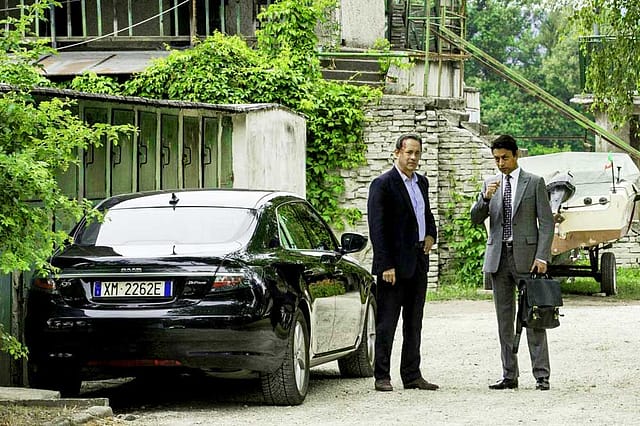Inferno Movie Review

We are told by a character in Abbas Kiarostami's 'Certified Copy' that the whole of Italy is an open air museum and one quarter of the art treasures in the world are contained within it. We are also told that not all the art is genuine, and quite a few can be classified as certified copies, such exact replicas that not even the original artist would be able to tell the fake from the true. In this sense, the spider's stratagem of a story that is Ron Howard's movie adaptation of 'Inferno', mirrors the Dan Brown novel, which is itself a copy of many other copies of ideas in Italian art and literature, passed down from the middle ages to the renaissance to modern times. So 'The Da Vinci Code' takes a work of Leonardo Da Vinci, the 'Last Supper', and writes a puzzle around it, and this film takes the nine circles of hell described in Dante's 'Inferno', places it parallel to Botticelli's visualization of the same in his 'Map of Hell', and then adds a few additional modern clues to it that intrigue and entertain.
It is an elaborate crossword, a formula, which grips you if you have read the book, but doesn't quite hold if cinema is your first encounter with it. The film script is forced to contain so many of the concepts and symbols that are strewn across the work, and which can only be accurately interpreted by the erudite and verbose Professor of Iconology and Symbology, Robert Langdon (Tom Hanks), that the movie is compelled to assault you with information, and hardly stops for breath.
Pauses to take in character, effect a judgement on a situation, or just simply to reflect on and admire the architecture of Florence and Venice, do not exist. We walk the talk in this film. Even Tom Hanks, so good with drifting into reveries of past flights as Captain Sullenberger, in 'Sully', is on auto-pilot in 'Inferno'. For the first half of the film he is talking to who he thinks is his ally, Sienna Brooks (Felicity Jones), a doctor who treats him when he has apparently had an accident and is suffering from temporary amnesia, and all they do is talk.
2026 Forecast
09 Jan 2026 - Vol 04 | Issue 53
What to read and watch this year
You don't see any relationship, romantic or otherwise, and it is not his fault, or hers either. He is so busy inserting text to fill in the blanks of the book plot, he has no time.
It is said that a clever actor creates time for himself to stand out, no matter how crowded the plot, just like a good batsmen finds time to play his shots, no matter how fast the pitch. In this sense, Irrfan Khan, who plays Harry Sims, has his heavy duty explanations to give as well, but does so with much self deprecating humour. After he kills a man in a rather messy way, he confesses to Robert Langdon that it is not his best job, but says that it is good enough for the Italians, his tone indicating just how low his opinion of Italian murder skills are.
Harry Sims is the shadowy head of a consortium which unknowingly enables the activities of the billionaire scientist in the movie, Bertrand Zobrist (Ben Foster), who says that the world is facing another extinction, this time due to over population, so the best thing to do is to remove half the people in the world by infecting them with a virus. But because Zobrist is a Dan Brown character, with an obsessive compulsive need to create maps, codes, drawings, numbers, literary references and dates, the formula of his evil design must be cracked. So we get cracking.
'Inferno' is a shade more interesting and more compact than the previous Ron Howard adaptations, but it has to be said that the films have now become like elaborate puzzles, to be worked out only by the passionate aficionado. This does not allow a film maker the luxury of a cinematic exploration of the text, of religious background or motivation, of any question that Professor Langdon might have had about faith versus skepticism in the Christian tradition. There is a formula, and it has to be unravelled, QED.
